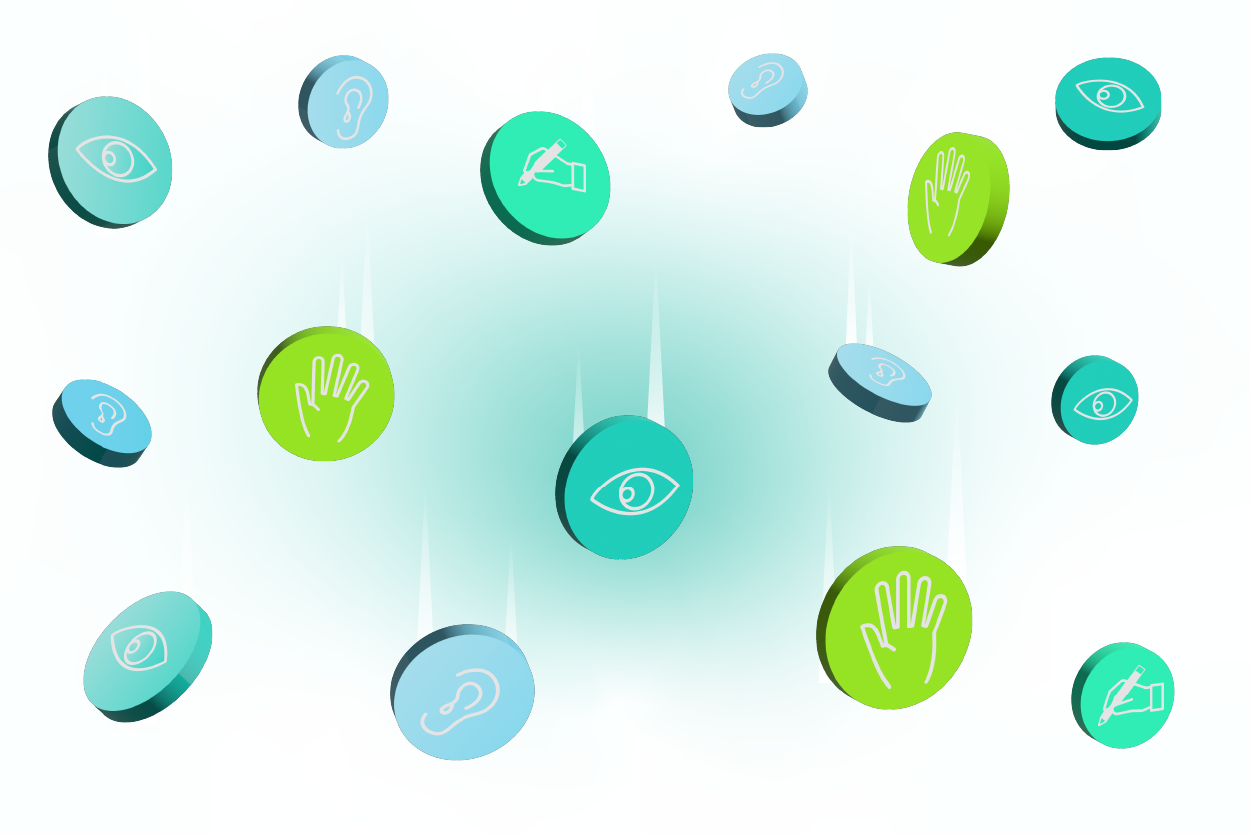
What truly drives success? While technical proficiency remains essential, it’s the soft skills that often differentiate top performers. They also ensure we leave a lasting impact, rather than fade into obscurity.
Soft skills are the intangible abilities that influence how you work, interact, and lead. These skills empower us to become adept interpersonal navigators who are capable of confidently handling any situation with grace and poise.
Indeed, without intentionally developing these skills, you may find yourself at a competitive disadvantage.
This article explores 34 essential soft skills that can cultivate a high-performing and well-rounded workforce. We’ve also included insights to illuminate the critical role these skills play in professional and personal success. Okay, let’s get started!
What Are Soft Skills?
Soft skills are the personal attributes, behaviours, and social attitudes that empower individuals to interact effectively with others. They are essential for building strong relationships, communicating effectively, and solving problems.
Unlike hard skills, which are specific, teachable abilities, soft skills are more intangible and difficult to measure. They are often developed through experience, but can be honed with the right guidance.
Imagine hard skills as tools in a toolbox. They are specific abilities like graphic design, project management or data analysis. Soft skills, on the other hand, are the tactics and craftsmanship that determine how effectively you use those tools.
The term ‘soft’ skills might imply lesser importance compared to their technical counterparts. However, this simply isn’t the case. As Peggy Klaus puts it, ‘Soft skills get little respect but [they] will make or break your career.’
Why Are Soft Skills Important?

In essence, soft skills are the interpersonal abilities that make the difference between a good employee and a great one. They unlock a wealth of advantages for both individuals and organisations. Let’s explore these benefits:
- Better Communication: Effective communication and teamwork are essential for success on an individual, team, and organisational level. Soft skills facilitate open dialogue, understanding, and cooperation.
- Stronger Relationships: Building and maintaining positive relationships with colleagues, clients, and customers is crucial if you want your organisation to thrive. Soft skills are the foundation of these relationships.
- Problem-Solving: Every organisation encounters its fair share of challenges. These can be overcome with the right problem-solving approach. This, in turn, requires soft skills such as creativity, critical thinking, and adaptability.
- Increased Retention: Employees who possess strong soft skills tend to be happier in their work. This naturally leads to higher retention rates, which helps you to stockpile your intellectual capital.
- Embracing Change: As you know, the modern workplace is constantly evolving. Soft skills aid both individuals and organisations in navigating this change and embracing new challenges.
- Improved Leadership: The role of leadership within an organisation is undeniably crucial. Effective leaders exhibit a range of soft skills, including empathy, communication, and decision-making.
A study by Harvard University suggests that a whopping 85% of career success hinges on well-developed soft skills and interpersonal abilities. This is clearly not an area that we can afford to overlook. The report also notes:
‘As the impact of AI and disruptive technology grows, candidates who can perform tasks that machines cannot are becoming more valuable.’
As it happens, soft skills are equally important in our personal lives. Effective communication, empathy, and problem-solving help to enhance our relationships with friends and family and contribute to our overall well-being.
34 Top Soft Skills for the Workplace
Now that we’ve explored the significance of soft skills, let’s list the essential abilities that can propel your career forward, or take your learners to the next level. These skills are crucial for thriving in today’s dynamic workplace:
1. Communication
Effective communication is the cornerstone of all successful relationships, both personal and professional. This essential soft skill encompasses all verbal, written, and nonverbal means of communication. Honing it allows you to communicate ideas effectively and build rapport with others.
Did you know: 72% of business leaders believe that effective communication has a positive impact on their team’s productivity.
2. Teamwork
According to reports, teamwork is what makes the dream work! In truth, the ability to collaborate with others effectively is vital in today’s interconnected world. This requires cooperation, mutual respect, and the ability to contribute to a shared goal. If you can achieve this then the dream is sure to follow.
Did you know: According to Stanford University, teams that work well together are 50% more productive.
3. Problem-Solving
Life is full of ups and downs. Problem-solving is the art of identifying issues, analysing potential solutions, and implementing effective strategies. Good problem-solving allows you to adapt to changing circumstances and overcome any obstacles that lie in your way.
Did you know: More than 60% of employers look for evidence of problem-solving skills when evaluating job candidates.
4. Adaptability
When the going gets tough, do you get going? The capacity to adjust to new situations, challenges, or changes in the workplace is crucial for long term career success. In turn, adaptability requires flexibility, an open-mind, and a willingness to learn and grow.
Did you know: A McKinsey study suggests that adaptable individuals are 24% more likely to be employed.
5. Leadership
Think back to leadership figures you’ve admired in the past. The very best of them have the ability to influence and inspire others to achieve common goals. This requires strong communication, decision-making, and interpersonal skills, as well as the ability to motivate their team members.
Did you know: According to a U.S News poll, ‘being trustworthy’ was ranked the most important leadership trait.
6. Time Management
Most of us are now accustomed to having to spin multiple plates at once. Indeed, effective time management is essential for productivity and achieving work-life balance. To achieve this, you’ll need to prioritise tasks, set clear goals, and utilise time-saving strategies.
Did you know: Those who practise effective time management techniques are 57% more successful at completing tasks promptly.
7. Emotional Intelligence
Understanding and managing emotions is a vital soft skill. This is true whether the emotions in question happen to be your own, or somebody else’s. Emotional intelligence will help you to build stronger relationships and resolve any conflicts that arise.
Did you know: According to this Harvard Business School report, 71% of employers value emotional intelligence more than technical skills.
8. Creativity
Can you think outside of the box? Creativity is the ability to generate new ideas and approaches to problem-solving. This often requires exploring different perspectives, brainstorming, and fostering innovation. Once you’ve done that, you then need to find a way to put your ideas into action.
Did you know: As many as 75% of people do not believe that they are living up to their creative potential.
9. Critical Thinking
Critical thinking focuses on your ability to analyse information, evaluate evidence, and make informed decisions. It allows you to effectively weigh the pros and cons of different options, identify potential biases, and make choices that are aligned with your goals.
Did you know: 95% of survey respondents agree that critical thinking skills are essential in today’s modern workplace.
10. Work Ethic
When it comes down to it, are you willing to roll your sleeves up? A strong work ethic is characterised by dedication, reliability, and a commitment to excellence. This involves taking ownership, meeting deadlines, and consistently delivering high-quality work. Just remember to allocate your efforts strategically.
Did you know: A staggering 85% of employers cite poor work ethic as a primary reason for employee dismissal.
11. Negotiation
Negotiation is a critical skill for achieving desired outcomes whilst still maintaining positive relationships. After all, when negotiating you’re effectively trying to engineer a win-win situation. This involves effective communication, problem-solving, and the ability to compromise when necessary.
Did you know: Only 26% of sales negotiators ‘always’ know what questions they will ask the other party.
12. Organisation
How well organised are you? This refers to your ability to structure tasks, manage your time effectively, and create systems for efficiency. The knock-on effects of this can be a game changer. Indeed, you’ll be in a better place to prioritise work, set goals, and meet your deadlines.
Did you know: The average employee spends 58% of their day doing ‘busywork’. This includes searching for information, chasing updates, and switching between tasks.
13. Empathy
Empathy is the ability to understand and share the feelings of others. It involves putting yourself in another person’s shoes. Of course, this is figurative. It’s rather unempathetic to steal someone else’s shoes. By practicing empathy, you’ll be able to build strong relationships, foster trust, and improve communication.
Did you know: 86% of employees believe that empathetic leadership helps to boost organisational morale.
14. Conflict Resolution
Unfortunately, conflict is more or less inevitable in any workplace or personal relationship. This is usually the result of differing perspectives and strong commitments. Conflict resolution is the ability to address these disagreements calmly and constructively, so you can move forward in harmony.
Did you know: Nearly two-thirds of workers have experienced some form of incivility at work over the last month.
15. Active Listening
Sorry, what did you say? Active listening involves paying full attention to whoever’s talking, understanding their perspective, and preparing to respond thoughtfully. This also requires maintaining eye contact, avoiding interrupting, and not letting yourself get distracted.
Did you know: 55% of all communication is dedicated to listening. Let’s make sure this is time well spent!
16. Stress Management
Stress is a natural part of life, but the ability to manage it effectively can help you to maintain your well-being and boost your performance. To pull this off, you’ll need to be able to identify stressors, develop coping mechanisms, and practise relaxation techniques.
Did you know: As much as 79% of adults feel stressed at least once a month.
17. Self-Awareness
The ability to understand your own emotions, thoughts, and behaviours is a key soft skill. By reflecting on your strengths, weaknesses, values, and motivations, you’ll be able to improve relationships and build your self-confidence. It all starts with you. Are you ready to reflect?
Did you know: According to research conducted by Dr. Tasha Eurich, only 10-15% of people fit the criteria for self-awareness.
18. Attention to Detail
Do you sweat the small stuff? Attention to detail requires accuracy, precision, and thoroughness. It’s essential for tasks that require careful execution and error-free results. If you can’t afford to make mistakes in your role, then this is a soft skill you’ll need to cultivate.
Did you know: 28% of managers agree that low attention to detail decreases organisational productivity.
19. Initiative
Carpe diem! Seizing the opportunity at the right moment can yield exceptional results. True initiative requires being proactive, self-motivated, and willing to go the extra mile when necessary. These types of individuals are often seen as leadership candidates.
Did you know: 85% of employees take more initiative when they receive feedback.
20. Patience
Patience is a virtue and it’s also a soft skill. This is the ability to endure difficulties or delays without letting frustration get to you. It’s essential if you’ve got a long term goal that you want to achieve. After all, it will help you to stay the course and overcome any setbacks.
Did you know: UK residents have been found to lose their patience if their kettle takes longer than 28 seconds to boil. Don’t come between a Brit and their cuppa!
21. Decision Making
Closely linked to critical thinking, decision-making involves selecting the best course of action from several options. You’ll need to be able to weigh the potential consequences of different choices and make the best selection given the information you have to hand.
Did you know: According to McKinsey, employees spend more than 30% of their working time on decision-making.
22. Humility
Humility is the quality of being modest and respectful of others. After all, nobody likes a braggart. As such, you should take the time to recognise your limitations, be receptive to feedback, and attempt to learn from others. This will also help to strengthen your working relationships.
Did you know: 80% of managers worldwide see themselves as humble. Unfortunately, only 36% of employees agree with them.
23. Goal-Setting
It’s difficult to get somewhere if you don’t know where you’re going. Goal-setting involves establishing clear objectives (something that’s useful for your learning programmes too!) and creating a roadmap for achieving them. Then all you need is the right level of motivation.
Did you know: Those who set goals are 43% more likely to achieve them.
24. Persuasion
You can’t achieve everything alone, so you’ll need to bring others along with you on the journey. Persuasion is the ability to influence others to believe or do something. This requires effective communication, good rapport, and a precise understanding of each other’s needs.
Did you know: ‘Well-crafted’ stories are 35% more persuasive than other communication approaches.
25. Enthusiasm
A positive mindset is a powerful tool for personal and professional growth. Similarly, enthusiasm is a positive and contagious energy that can motivate yourself and others. It drives passion, creativity, and can fuel a strong work ethic. It’s often the difference between standing still and getting started.
Did you know: A recent study found that a staggering 90% of UK workers lack enthusiasm for their jobs.
26. Presentation Skills
As we’ve seen, effective communication is vital in today’s workplace, and the ability to present your ideas confidently is paramount. Mastering public speaking and storytelling is essential for captivating audiences and conveying information clearly. Don’t forget your visual aids!
Did you know: Studies estimate that 75% of adults are hampered by a fear of public speaking.
27. Digital Literacy
The relentless pace of digital transformation demands continuous adaptation and skill development. Digital literacy is your ability to use technology effectively. In other words, you should be able to navigate the internet, use software applications, and have a good understanding of online security.
Did you know: More than 90% of jobs in Europe require basic digital knowledge alongside more traditional skills.
28. Written Communication
Written communication is the ability to convey information clearly and effectively in writing. Whilst you don’t need to aspire to Shakespearean eloquence, refining your grammar, spelling, and writing style to suit your audience is crucial for success. Remember, sometimes less is more.
Did you know: Josh Bernoff estimates that ‘bad’ or unclear written communication costs businesses $400 billion a year.
29. Coaching & Mentoring
Coaching and mentoring skills enable you to guide and support others in their personal and professional development. This usually has benefits for both the mentor and the mentee. It requires an open-minded approach, empathy, and the ability to build trust.
Did you know: 97% of mentored employees find their mentors valuable.
30. Cultural Awareness
Understanding and embracing different cultures, customs, and beliefs is vital for fostering a harmonious and inclusive working environment. This soft skill requires an open mind, a deep well of empathy, and a willingness to adapt to diverse perspectives.
Did you know: According to Josh Bersin, inclusive companies are 1.7x more likely to be innovation leaders.
31. Reliability
Want to build trust? Prove that you’re reliable. This means you’ll need to consistently deliver on commitments, meet all your deadlines, and maintain a high standard of work. This will solidify your reputation as a dependable team member, earning you respect from both your peers and leadership team.
Did you know: A CareerCast survey found that deadlines rank as the biggest cause of workplace stress.
32. Accountability
Accountability is about taking ownership of your actions, decisions, and their consequences. When setbacks occur, it’s all too tempting to try and shift the blame rather than embrace the opportunity for growth. However, without doing this you’ll never foster a culture of trust.
Did you know: 93% of employees feel unaligned with their work goals and are unable or unwilling to take accountability for desired results.
33. Integrity
Integrity is the bedrock of trust and ethical conduct. To act with integrity is to adhere to strong moral and ethical principles in all situations, regardless of the difficulties this may create. As a result, you will foster a reputation for being reliable and consistent. Aristotle would be proud.
Did you know: 95% of employees surveyed said that integrity is one of their organisation’s values.
34. Diplomacy
Navigating both professional and personal life requires tactful diplomacy, building consensus, and finding common ground. A diplomatic person is able to communicate effectively, easily resolve conflicts, and be a positive force in their relationships. As with negotiation, this may sometimes require knowing when to compromise.
Did you know: Only 33% of employees agree that their workplace has effective conflict resolution processes in place.
Final Words
Phew, there we have it — 34 soft skills that are essential for thriving in today’s complex and dynamic world. In fact, they will reward you with a competitive advantage in both your personal and professional life.
By cultivating a rich tapestry of interpersonal abilities, you’ll position yourself as a valuable asset to your organisation. And an organisation filled with soft skill superstars is sure to go far.
So, why not identify the soft skills you want to cultivate or enhance to unlock your full potential? Remember, while ‘hard’ technical skills open doors, it’s often soft skills that determine how far you’ll walk through them.
Thank you for reading. To complement this article, we’ve crafted a series of 10 free eLearning courses (created using Growth Engineering Authoring Tool) designed to enhance your soft skills. Download them now and start learning today!









